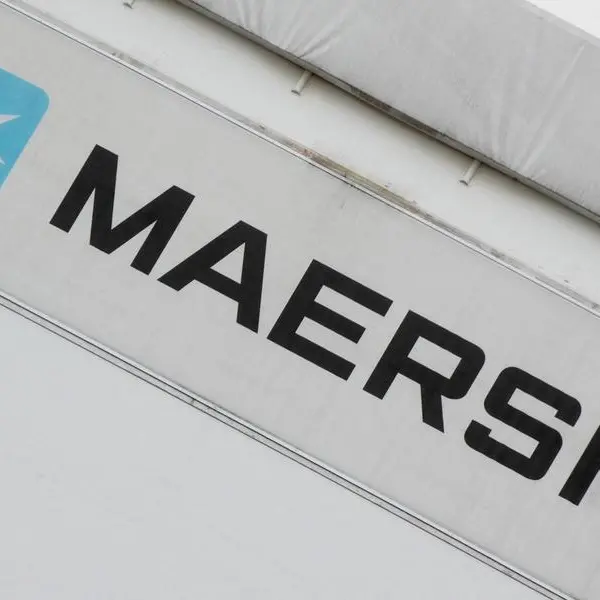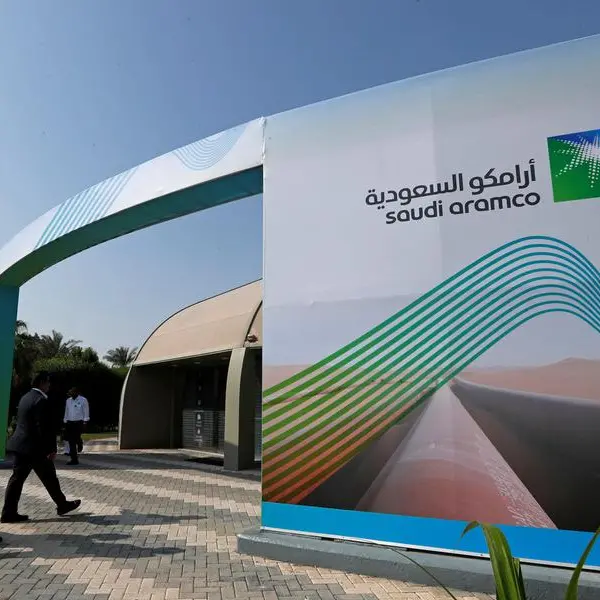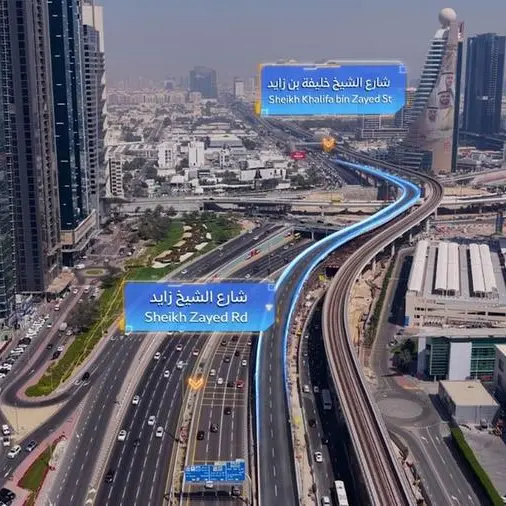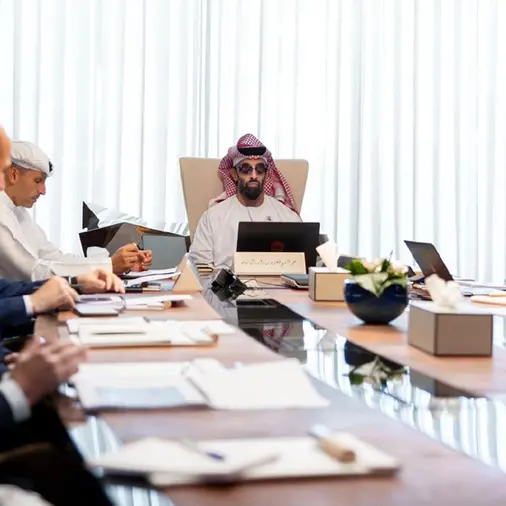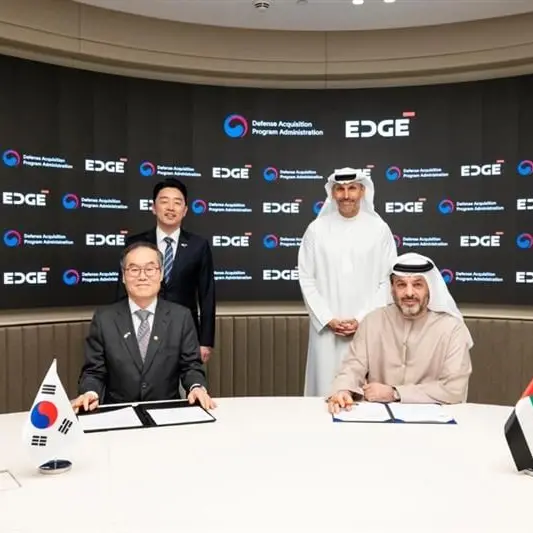The Sultanate of Oman is all set to introduce a new Intellectual Property Rights (IPR) protection and enforcement mechanism as a prelude to the US-Oman FTA. Akshay Bhatnagar meets the stakeholders to uncover the mystery behind IPRs
"Intellectual property rights include patents (utility, design, and plant), copyrights, and trademarks. A common definition of intellectual property rights is the rights given to persons over the creations of their minds."
With the signing of the US-Oman Free Trade Agreement (FTA) on January 19 this year by HE Maqbool bin Ali Sultan, Oman's Minister of Commerce & Industry, the Sultanate is on course to become a special trading partner of the US. But before the FTA comes into force, Oman is under compliance to set the house in order as per US conditions. Under its FTA obligations, Oman has committed to provide increased intellectual property rights (IPR) protection for copyrights, trademarks, geographical indications, and patents. Oman will also improve enforcement and protection of undisclosed test data from unfair commercial use.
The US authorities are providing technical assistance to the Omani government to change the prevailing IPR regulations. In January this year, a regional IPR conference sponsored by US Patent Trademark Office (PTO) was held in Muscat. More than 45 participants with representation from the Ministry of Commerce & Industry, Office of Public Prosecution, Ministry of Justice, Ministry of Manpower and Royal Oman Police attended the conference and gained knowledge on IPR-related issues. In addition, US PTO is organising a series of global IP enforcement academies in the US to create awareness about IPRs.
"Last year, we organised the academies in December. This year, we organised the academies in February, May and June. Many Omani representatives participated in it. The next one is scheduled in August. The attendees meet the IPR experts in US PTO and US Trade Representative headquarters besides having an audience with corporates to gain from their experiences in dealing with IPR," informed an official from the US embassy in Oman.
The Omani authorities are working with World Intellectual Property Rights Organization in developing and drafting the new legislation. Once the legislation is ready, they are expected to share it with US Trade Representatives and US PTO to check its compliance with the FTA.
"Some of the major cases presented in the courts regarding trademarks are Seefat Sauce and Khanjer Rice etc. One of the violations made to copyright law relates to imitations of original artistic work on cassettes, CDs and DVDs. The investigators from consumer security department have conducted several investigative campaigns in co-operation with concerned government bodies. Together, they have confiscated huge caches of pirated products and they are still working on fighting this problem."
Yahya Bin Issa Al-Riami, Director, Intellectual Property Department, Ministry of Commerce & Industry
IPR Violations in Oman
Like seen in many markets across the world, the major cases related to IPR violations here pertain to software piracy, music and movie piracy, counterfeit branded FMCG, stealing of satellite channels' signals, auto ancillaries, pharmaceuticals etc. According to Yahya bin Issa Al-Riami, Director, Intellectual Property Department, Ministry of Commerce & Industry: "The most prominent issue is the imitation of trademarks which confuses the consumer and makes it difficult for him to identify the difference between the original and imitated product.
The private sector has major concerns due to business loss on account of their IPR violations. Pankaj K Khimji, Partner, Khimji Ramdas Group said, "There are challenges on the IPR front. We have concerns in beauty care products, especially shampoo line. As per our estimates, almost 30-35 per cent of what is sold in the market is counterfeit. Unfortunately, very little can be done because there is the issue of how do you know that it is counterfeit. Because the difference between the real and the counterfeit could be determined by an expert only. It's not like Rolex watch which you can open and identify the difference easily. With the help of the bottlemaking die and sticker, the fake packaging will look similar to the original pack."
Khimji added, "For large MNCs, Oman as a market is a drop in the ocean, but we, as hard burned traders, feel the heat. MNCs focus on the manufacturers of counterfeits instead of the sellers."
The consumer is affected by IPR violation. His or her expectations of the product are not met, he is at risk as counterfeit manufacturers do not follow the same safety and quality standards as the original manufacturers. Charles Schofield of Trowers & Hamlins says: "The consumers might not get the products or services as the foreign companies might not introduce their products or services due to a country's poor IPR protection."
But the situation is changing fast. Jawad Al-Redha, Co-Chairman of Business Software Alliance (BSA) Middle East said: "Dealers are co-operating with BSA and are showing their commitment by signing the Code of Ethics drafted by BSA to protect copyrighted software. Forty Omani companies have signed the BSA Code of Ethics since October 2003. The Code of Ethics declares that the signatories would neither commit nor tolerate the manufacture, use, or distribution of unlicensed software and would supply only licensed software to customers."
BSA is an international organisation committed to protecting the rights and interests of software developers and providing a safe e-commerce environment.
Issues in IPR Implementation in Oman
One of the major complaints against IPR Laws is the laxity towards giving harsher punishment to the guilty.
For example, if someone is caught violating a copyright law, he/she will be sentenced to jail for not more than two years and a fine of not more then RO2000. Besides, all the duplicate products will be confiscated along with the articles used to make the illegal duplication. Perhaps, it's not a harsh deterrent for the regular offenders.
According to Schofield, the greatest challenge is the enforcement of the law. "Internationally, the mechanisms are in place with a strong judicial system which has the ability to provide urgent relief like quick injunctions. The affected people based on those injunctions can take action themselves against those who are breaching their IPRs. Self-help is the norm everywhere but the mechanism needs to be in place to facilitate the process," he said.
Paul Sheridan, Managing Partner, Denton Wilde Sapte, believes that the government authorities don't want to use IPR-related laws harshly on the people because the public at large is new to the IPR development and is not used to it. There is another problem under the law, which relates to evidence. It is difficult to prove that someone is infringing on the copyrights. The court wants the official evidence of the infringement.
"Another related and notable issue is that the police are not fully equipped to understand the crime. They refuse to file the case unless we approach the public prosecution and the public prosecution asks us to submit an explanation of why a particular development, like using a computer programme illegally, is a crime.
It's difficult to get the protection despite the law being in place. Lastly, the issue is left for the ordinary commercial court to solve. This is an area of concern. May be, IP specialist judges would be a better option," Sheridan said.
Sheridan's colleague at Denton Wilde Sapte, Dianne Hamilton, who has recently moved to Oman from Australia, has a fresh perspective on the subject as she said: "The IPR laws in Oman are there but the exemptions under them are too wide. For example, educational institutions can use any part of scientific copyright work or even all of it. So the person who made the effort of creating the intellectual property loses out instantly. It also means that the educational institutions can use IP work like Micosoft programmes.
That's extraordinary, as one has to pay for using the same software in other places. Similarly, entire content reproduction by broadcasters and newspapers are allowed related to economic and religious articles besides news on current topics. The wideness of the permissible usage is too much. To protect IPR in the country, this kind of exemptions need to be looked into. In Australia, the copyright laws are quite extensively written but here, it is summarised in a few pages without getting into complete details."
There is another issue that must be dealt with. Otherwise, it might grow into a major problem for the government as the country progresses in the coming years. "Under the copyright law, one has to deposit the intellectual property physically with the ministry to get a copyright. How are the authorities going to handle situations like TV channels, radio stations and movies beaming copyrighted programming round the clock later on?" asked Abdelrahman Mohamed Elnafie of Denton Wilde Sapte.
Fear Among MNCs
Already, some MNCs have raised their apprehensions about the protection of their intellectual properties in Oman. With the US-Oman FTA, MNCs based out of the US are going to be more vocal and aggressive in giving vent to their fears.
One major area of concern, according to Sheridan, is knowledge transfer. He said: "At times what happens is that a local company ties up with an MNC to make and/or sell their products/services under the trademark of that MNC. But after the expiry of the contract between the two, the local company goes on its own by introducing its own brand/ product with high degree of similarity with the MNC brand that it was dealing with earlier. The MNC company then sues the local company. As a result, many MNCs get wary of giving their technical know-how to the local company due to the fear of duplication later on."
Agriculture too is not immune to IPR violations. Terence Shelby, Deputy General Manager, Tawoos Agricultural Systems LLC informed: "We source seeds, fertilizers, chemicals etc. from the vendor and the agreement is based purely on trust and faith. It's a gentleman verbal agreement presuming that we are supplied with products on which they have rightful ownership. The margins in agriculture are very small. It is quite possible that in the process to increase their margins some of the companies might cut corners by resorting to cheaper inputs and in the process violate IPRs without even knowing about it."
More than anything else, MNCs look forward to maintaining confidentiality and business secrets with the comfort of approaching a court to get relief at a faster pace in the case of IP violation. They are worried about the availability of instant remedy for enforcement of their rights.
In a major initiative to fight illicit replication of genuine goods and to help enforce Intellectual Property Rights, some of the renowned international brands have joined hands to launch the Brand Owners Protection Group (BPG) for the GCC and Yemen, based in Dubai.
Some of the most reputed global brands that have joined hands to establish the BPG include Beiersdorf, British American Tobacco, DaimlerChrysler, General Motors, Johnson & Johnson, Nestle, Phillips, Procter & Gamble, and Unilever.
'These market leaders are alarmed at the economic, social, and moral impact that illicit trade has on consumers, governments, and legitimate businesses. The BPG has been founded in order to suggest and recommend effective measures to counter this social menace," added Omar Shteiwi, Chairman of the Board of the BPG and Regional Intellectual Property Advisor, Nestle Middle East.
Losses Due to Piracy
As per estimates, global counterfeiting currently represents between 7-10 per cent of world trade. Crimes ranging from counterfeiting, cloning and unauthorized association to diversion, tampering and theft are costing brand owners anywhere between US$350-600 billion per annum through loss of sales, legal action and erosion of brand loyalty and trust.
China, the global factory, leads in terms of IPR infringement as counterfeit goods now account for an estimated 15 per cent to 20 per cent of all products manufactured in China, said Representative Donald Manzullo, chairman of the House Committee on Small Business, US. About 95 per cent of all compact discs (CDs) and digital versatile discs (DVDs) manufactured in China are counterfeit. The Chinese counterfeit production is affecting the US economy badly. "In 2005, almost 70 per cent of counterfeit products seized at US borders originated in China. Manufacturers of pharmaceuticals, auto parts, aircraft engine parts and other advanced industrial products are now experiencing the same incursions that are already familiar to content providers and artists. With an annual exchange of goods worth over US$285 billion, this creates a bilateral trade issue of the utmost importance between the US and China," he said.
US auto parts producers estimate that they are losing US$12 billion per year because of counterfeiting. The US Federal Trade Commission has determined that domestic corporations in the automobile industry could hire another 250,000 American workers if sales of counterfeit parts were eliminated. No wonder US authorities are aggressively lobbying for curbing piracy and enforcing IPR laws in most of the countries to protect its own interests.
In terms of software piracy rate, the Middle East dropped one percentage point last year to 57 per cent, while the global piracy rate has remained unchanged at 35 per cent, according to an independent study released by BSA. The UAE's piracy level of 34 per cent is lower than that of several European countries, such as France, Italy, Spain, Portugal, Greece and Ireland, and is comparable to the piracy rates of the United Kingdom (27 per cent), the Netherlands (30 per cent), Australia (31 per cent), Qatar (60 per cent), Oman (62 per cent) and Kuwait (66 per cent). Saudi Arabia remained unchanged at 52 per cent. The total loss due to software piracy in the Middle East and Africa region stood at US$1.6 billion. As per estimates, 35 per cent of the packaged software installed on personal computers worldwide in 2005 was illegal, amounting to US$34 billion in global losses due to software piracy.
Benefits of IPR Protection
A US embassy official opined, "The companies from the US, Oman and other countries are going to benefit alike from stricter IPR norms and enforcement in the Sultanate. It is not going to benefit just the US companies alone. If Oman is serious about building a knowledge-based economy, and if it wants to improve on research and development activities, it has to improve on IPR performance. Otherwise, knowledge/technology transfer and foreign investment will not happen here, because companies will be wary of enforcement of their IPRs. The FTA commitment will open for Oman, a country of 2.5 million people, a duty free access to US market of 290 million people. That's a good deal for Oman. FTA is a special club.
Jordan, which joined the US FTA club a few years ago, is a good example. In 2000, the trade between US-Jordan was around US$200 million and now it is over US$1.1 billion. The software industry, which was almost non-existent in Jordan earlier, is now a booming industry after the FTA."
A BSA-IDC study illustrates economic gains from reducing software piracy. Reducing the worldwide piracy rate by 10 percentage points could create 2.4 million jobs - US$400 billion in economic growth. In China, the IT sector is projected to grow by 85 per cent by 2009 despite a software piracy rate of 90 per cent. However, a 10-point piracy reduction could increase China's IT growth to 209 per cent - a 124 per cent differential. Curbing piracy and adoption of legitimate software leads to expansion of software companies' business across countries which generates more jobs.
The IT sector in the Middle East & Africa is a small but a growing US$17 billion industry, with 32,000 businesses employing more than 220,000 people and generating US$6.6 billion a year in taxes. With a 10-point reduction in its 58 per cent software piracy rate, the region's IT sector could grow to US$27.5 billion by 2009, adding almost 95,000 new jobs and US$5.4 billion in additional economic growth.
Arguments Against IPR
There are counter arguments, which contend that better IPR leads to faster economic growth and higher FDI. In the 1970s, as many developing countries were not technologically at the forefront, the incentives provided by IPR, and patents in particular, for investment in research and development, were not meaningful. IPR was considered as 'protection for monopoly imports' of benefit to exporters at the expense of developing country importers.
The world has changed quite drastically in the last few decades. But many countries remain in a position where they are the buyers, rather than producers of key products and technologies. For these nations, enhanced IPR will lead to increased imports and higher prices in some sectors. The domestic benefits of stronger IPRs are less clearly established. Past justifications of stronger IPR as being an important 'signal' of openness to economic activities or theoretical justifications of the roles of IPR have been useful but not compelling for those who are seeking some clearly documented evidence.
There is no clear presumption that stronger rights will always enhance welfare e.g., for small countries (those whose R&D expenditures do not registered globally), stronger IPR increases welfare by enhancing access to products not otherwise available. Over-protection in countries with limited R&D capacity, reduces local production of 'pirate' products, and can lead to reduced benefits due to higher prices and job losses. But if the small country has both production and innovation capacity, welfare results are indeterminate.
As Thorstein Veblen, Norwegian-American economist and sociologist, said, "Ownership gives the owner not only the right of use over the community's immaterial equipment, but also the right of abuse and of neglect and inhibition."
When use of existing work is restricted, society may be hurt. As intellectual objects are public goods, granting a (temporary) monopoly on their commercial exploitation may not leave "enough and as good."
Independent inventors are hurt as they may be prohibited from using something they have developed themselves but another party was granted a patent for earlier. It is further argued that intellectual objects are more often than physical ones, the result of cooperation - a cooperation that may or may not be promoted by IPRs
It is becoming increasingly difficult for developing countries to ignore IPR policies. Only when a country has a sufficiently attractive internal market and/or has a sufficiently strong research tradition itself will it be able to negotiate on an equal footing. China, India, and Brazil are examples of countries that are able to credibly use the threat of drawing on the compulsory license clause in Trade Related Aspects of Intellectual Property Rights (TRIPs) to make right holders lower the price of the products they offer. If a country offers protection of IPRs that is perceived as too weak, FDI might suffer and exports of products that embody new technology might be lower too, for fear of such products being re- imported.
Developed economies like the US have been haphazard in implementing and enforcing IPRs when they were not yet so relatively developed themselves. Had Japan done so with regard to patents, it might not have had its strong electronics industry. Had the USA done so with regard to copyrights, it might not have had its strength in the entertainment industry that it now has.
To prevent the system of IPRs from being hijacked by larger firms, standards for obtaining patents should be raised; and made sure that incentives to initial inventors are more clearly and evenly weighed "against incentives for follow-on innovators". Narrowing the scope of patents is one option; shortening the duration of (some) patents is another. Differentiating between patents covering different areas has also been suggested by Bill Gates of Microsoft.
In the case of Oman, the new IPR regulation is round the corner as to quote a senior US government official: "It is like taking the pen to the paper." It will be interesting to see how the US FTA will work for Oman. The other Middle Eastern nations are keeping a close tab on the developments, as they are next in queue to join the special US FTA club.
US demands on IPR regulations from Oman
Copyrights: Protection for copyrighted works in a digital economy
The agreement ensures that authors, composers and other copyright owners have the exclusive right to make their works available online. The agreement also ensures that copyright owners have rights to temporary copies of their works on computers, which is important in protecting music, videos, software, and text from widespread unauthorized sharing via the Internet.
Each government commits to protect copyrighted works, including phonograms, for extended terms (e.g., life of the author plus seventy years), consistent with US standards and international trends.
The agreement includes strong anti-circumvention provisions, requiring each government to prohibit tampering with technologies (like embedded codes on discs) that are designed to prevent piracy and unauthorized distribution over the Internet.
Each government commits to using only legitimate computer software, thus setting a positive example for private users.
The agreement requires protection for encrypted program-carrying satellite signals (including the signal itself and the programming), to prevent piracy of satellite television programming.
The agreement sets out obligations concerning the liability of Internet service providers, reflecting the balance struck in the US Digital Millennium Copyright Act between legitimate ISP activity and the infringement of copyrights.
Patents & Trade Secrets
Patent terms can be adjusted to compensate for unreasonable delays in granting the original patent, consistent with US practice.
Grounds for revoking a patent are limited to the same grounds required to originally refuse a patent, thus protecting against arbitrary revocation.
The agreement provides protection for newly developed plant varieties.
Test data and trade secrets submitted to a government for the purpose of product approval will be protected against unfair commercial use for a period of five years for pharmaceuticals and 10 years for agricultural chemicals.
The agreement ensures that government marketing-approval agencies will not grant approval to patent-infringing pharmaceuticals.
Trademarks: State of the Art Protection in the Digital Age
The agreement requires each government to maintain a system to resolve disputes involving trademarks used in Internet domain names, which is important to prevent "cyber-squatting" with respect to high-value domain names.
The agreement applies the principle of "first in time, first in right" to trademarks and geographical indications, so that the first person who acquires a right to a trademark or geographical indication is the person who has the right to use it.
Each government will be required to establish transparent procedures for the registration of trademarks, including geographical indications, and to develop an online system for the registration and maintenance of trademarks, as well as a searchable database.
IPR Enforcement: Tough Penalties for Piracy and Counterfeiting
The agreement requires each government to criminalize end-user piracy, providing strong deterrence against piracy and counterfeiting.
Each government commits to having and maintaining authority to seize, forfeit and destroy counterfeit and pirated goods and the equipment used to produce them. IPR laws will be enforced against good in transit to deter violators from using US or Omani ports or free-trade zones to traffic in pirated products. Ex officio action may be taken in border and criminal IPR cases, thus providing more effective enforcement.
The agreement mandates both statutory and actual damages under the Omani law for IPR violations, which will deter piracy. Under these provisions, monetary damages can be awarded even if actual economic harm (e.g. retail value or profits made by violators) cannot be determined.
IPR regulations in Oman
Oman's tryst with IPR started with the Sultanate passing a Trademark Law in 1987, leading to registrations of trademarks in the official Gazette. There was no patent or copyright protection at that time. A US IPR delegation visited Oman in May 1992. During the talks, Omani officials tentatively acknowledged the need to draft patent and copyright laws and expressed an interest in examining the process. The Sultanate agreed to join the World Intellectual Property Organization in September 1996. Thereafter, in 2000, the Sultanate joined the World Trade Organization (WTO) and signed an agreement on the protection of intellectual property rights.
As part of its WTO accession, Oman introduced amendments to the GCC patent law to comply with its obligations under the Trade Related Aspects of Intellectual Property Rights (TRIPs) Agreement. In 2000, Oman amended its copyright protection law, and in 1999, enacted decrees banning the local sale of pirated video cassettes, sound recordings, and computer software.
Currently, the laws related to IPR in Oman include:
1) Copyright and Neighbouring Rights Law (Royal Decree No. 37/2000)
2) Trademarks, Descriptions and Secrets and Protection from Unfair Competition Law (Royal Decree No. 38/2000)
3) Protection of Industrial Designs Law (Royal Decree No. 39/2000)
4) Protection of Geographical Indications Law (Royal Decree No. 40/2000)
5) The Topographies Rights of Integrated Circuits (Royal Decree No. 41/2000)
On the changes expected soon, Yahya Bin Issa Al-Riami, Director, Intellectual Property Department, Ministry of Commerce & Industry informed, "Currently, Protection of Industrial Designs Law (Royal Decree No. 39/2000) is under revision. Besides that, an executive draft of the law is being made in association with WIPO. The law will be announced after the review and approval by WIPO and subsequently, the Ministry of Commerce and Industry and Ministry of Juctice."
He added, "Currently, 80 per cent of registered trademarks in the Sultanate are owned by companies from other countries, while 20 per cent of total registered trademarks are owned by Omani companies."
Relevance of IPR in your daily lives
If you observe the mineral water bottle and relate it to IPR laws, you will find that this product is related to five IPR laws which are illustrated in the following example:
The object, which has been used to produce the bottle, such as plastic, is a derived material from petroleum as a new idea can be implemented industrially to solve a technical problem. This innovation is called invention and it re-acquires a Patent.
Then, designing the bottle in attractive way goes under Industrial Design Law and the related brand of the bottle goes under the Trademark Law. Moreover, if the bottle is filled with water from the holy Zamazam source in Mecca, Saudi Arabia, and it's mentioned on the bottle, then it is Geographical Indication data.
Besides that, if the label put on the bottle has been designed by a talented artist, this requires copyright.
© Oman Economic Review 2006


